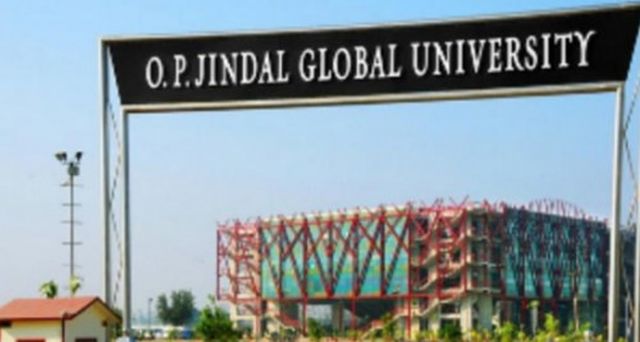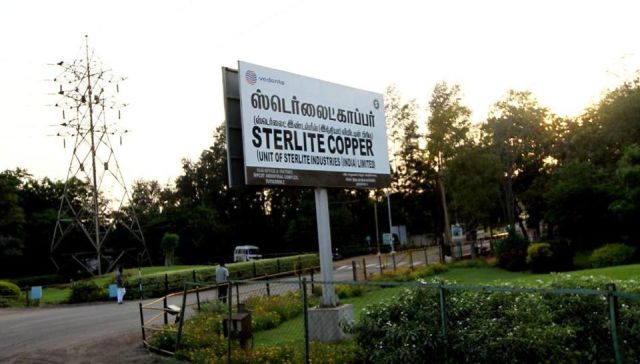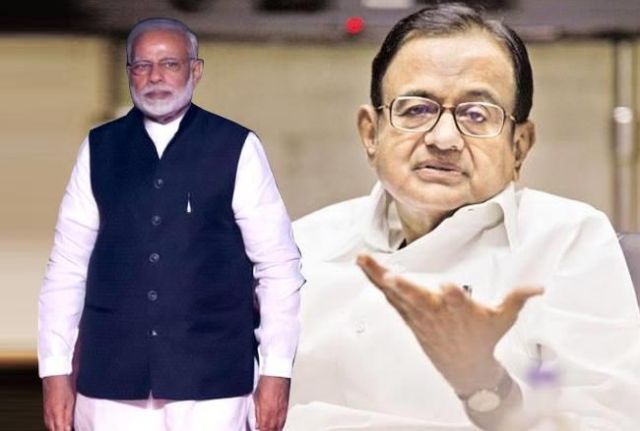
by admin | May 25, 2021 | Corporate Jobs, Employment, News, Private Jobs
 Sonipat (Haryana) : Turning a common perception on its head, international affairs students of O.P. Jindal Global University here have shown that pursuing a so-called “conventional” course can also open several doors of recruitment including in multinational companies, think tanks and international NGOs.
Sonipat (Haryana) : Turning a common perception on its head, international affairs students of O.P. Jindal Global University here have shown that pursuing a so-called “conventional” course can also open several doors of recruitment including in multinational companies, think tanks and international NGOs.
This year, Indian Political Action Committee (I-PAC), Care India and Development Alternatives led the recruitment for the students of the Jindal School of International Affairs (JSIA), the university said in a statement on Monday.
The corporate and non-profit institutions which recruited JSIA’s students include KPMG, Grant Thornton, Justice and Care, Deloitte, CREA, ESSAR Foundation, CRY, Godrej Culture Lab, Akshaya Patra Foundation, Atma Foundation, Sattva Consulting, The Centre for Internet and Society, and Global Trust.
“In the past, the study of international affairs was seen as leading only to civil service jobs or higher education ending in academic jobs,” said C. Raj Kumar, Vice Chancellor, O.P. Jindal Global University.
“JSIA has diversified the field significantly and showed the path to a variety of full-time positions for its graduating students,” he added.
JSIA combines the scholarly weights of three inter-related disciplines — international relations, international law and international business.
“We expect several domestic and international non-profit and for-profit entities to hire from our future graduating batch as several organisations have signed Memorandum of Understanding (MoUs) with our university for offering internships to our students,” Sreeram Chaulia, Dean of JSIA.
More than 40 organisations have led JSIA to achieve 95 per cent internship placements in diversified fields this year, the statement said.
—IANS

by admin | May 25, 2021 | Employment, Government Jobs
 New Delhi : Opening the doors of bureaucracy for private sector professionals, the government on Sunday invited applications for 10 Joint Secretary level posts through lateral entry as opposed to the UPSC examinations.
New Delhi : Opening the doors of bureaucracy for private sector professionals, the government on Sunday invited applications for 10 Joint Secretary level posts through lateral entry as opposed to the UPSC examinations.
The government said the proposal of lateral entry was aimed at bringing in “fresh ideas and new approaches” to governance and also to augment manpower.
“Government of India has decided to invite talented and motivated Indian nationals willing to contribute towards nation building to join the government at the level of Joint Secretary,” said a notification issued by the Department of Personnel and Training.
Joint Secretaries are at a crucial level of senior management in the government and lead policy making as well as implementation of various programmes and schemes of the department assigned to them. They report to the Secretary or the Additional Secretary in the respective ministries.
The joint secretary post is usually filled through the competitive exams conducted by the Union Public Service Commission (UPSC).
The government notification said that candidates having expertise in specific areas of revenue, financial services, economic affairs, agriculture, road transport and highways, shipping, environment and forests, new and renewable energy, civil aviation and commerce can apply for the posts.
While candidates from state governments and Central or state public sector undertakings will be appointed on deputation, the candidates from private sector will be appointed on contract basis, the notification said.
The NITI Aayog welcomed the move to initiate lateral entry in the bureaucracy with its CEO Amitabh Kant saying it was long overdue.
“NITI’s experience with lateral entry has been extremely good. They (candidates) bring in a vast number of fresh and vibrant ideas.
“This move in government was long overdue and I welcome it. (It) Will catalyze UPSC entrants to specialise. Government must also allow deputation of its officers to private sector as well,” Kant said in a tweet.
—IANS

by admin | May 25, 2021 | Corporate, Corporate Governance, Corporate Jobs, Employment, Private Jobs

Sterlite Copper
New Delhi : The decision of the Tamil Nadu government to shut the copper smelter plant in Tuticorin would have serious economic ramifications by pushing India’s annual import bill by an estimated $2 billion, said P. Ramnath, CEO, Sterlite Copper.
“The sudden decision of Tamil Nadu government to close down our copper smelter in Tuticorin will have far reaching ramifications for the economy of not only the town and its adjoining villages but also the country,” Ramnath said in a statement to IANS.
“While an estimated 30,000 direct and indirect jobs are now on the line, a large number of small to medium enterprises that are dependent on our smelter for copper are also likely to suffer due to supply disruptions. Since Vedanta Sterlite is one of the largest copper producers in the country, manufacturers in sectors ranging from electrical to defence will have to turn to imports and that will push up the nation’s annual import bill by an estimated $2 billion based on the current price,” he added.
In a second successive blow to Vedanta Ltd, the State Industries Promotion Corporation of Tamil Nadu Ltd (SIPCOT) on Tuesday cancelled in “larger public interest” the land allotted in Thoothukudi for the expansion of Sterlite Copper’s smelting plant.
The Vedanta copper smelter serves over 800 small and medium enterprises (SMEs) in the downstream industry for the critical electrical sector. The bulk of supplies to the electrical sector are to units in northern and western regions.
In its letter to Vedanta, the SIPCOT cited the public protests against the plant’s expansion on grounds of increased pollution and expressed concerns over pollution caused by the first smelter plant.
The government agency said the price of 342.22 acres deposited will be refunded as per the norms.
On Monday, the government issued orders to close Vedanta’s first copper smelter unit, whose capacity is 400,000 tonne per annum.
The Tuticorin facilities include a custom smelter, a refinery, a phosphoric acid plant, sulphuric acid plants and a copper rod plant. In addition, there is a captive power plants located in Tuticorin and a refinery and two copper rod plants operating in Silvassa, western India.
The closure order came after a total of 13 persons were killed in police firing on May 22 and the next day in protests in Thoothukudi against the continued functioning of the unit.
In November 2017, Vedanta said its board approved the expansion of its copper smelter to 800,000 TPA with a capex of $717 million, of which $141 million had already been spent.
The company claimed that after completion the project will make Thoothukudi as one of the world’s largest single-location copper smelting complexes.
—IANS

by admin | May 25, 2021 | Corporate Jobs, Employment, Private Jobs
 New Delhi : Companies in India are likely to recruit more permanent employees than contractual workers in the times ahead, a report said here on Tuesday.
New Delhi : Companies in India are likely to recruit more permanent employees than contractual workers in the times ahead, a report said here on Tuesday.
“The results suggest that recruitment drives will focus more on filling permanent roles, as opposed to temporary or contract positions,” said the “HireRight India Employment Screening Benchmark Report 2018”.
HireRight provides background checking services globally, including for employment and education purposes.
Talking to IANS on the demerits of over-dependence on contractual workers, Steve Girdler, Managing Director of HireRight for EMEA and APAC, said: “Contractors by their very nature are transient – they are employed for a specified length of time and then move on. However, most organisations would regard high turnover as a negative.”
“Not only does this require a constant cycle of training and recruiting, it also becomes difficult to establish a corporate culture and brand when people are constantly coming and going.”
Girdle said that although contract-based workers in a company go through screening process with an agency, the process is not always consistent.
Further, as per the report, “In 2018, almost half (43 per cent) of companies had less than 10 per cent of their workforce made up of non-employee workers.
“This contrasts with the previous year’s findings, where three quarters (73 per cent) of organisations stated that contingent workers accounted for 10 per cent to 19 per cent of their workforce”.
The report also revealed that companies in the country would emphasise on retaining employees in 2018.
“Despite ambitious growth plans, attracting talent appears to be a concern for fewer than half of employers (46 per cent) in India,” it said
“Instead, Indian employers are turning their attentions to minimising turnover, with the number of organisations investing in retention strategies more than doubling from 22 per cent in 2017 to 47 per cent in 2018.”
—IANS

by admin | May 25, 2021 | Employment, News, Politics
 New Delhi : Congress leader and former Finance Minister P. Chidambaram said on Monday that the biggest issue in the 2019 Lok Sabha election will be unemployment and Narendra Modi government’s “incompetence to create jobs”.
New Delhi : Congress leader and former Finance Minister P. Chidambaram said on Monday that the biggest issue in the 2019 Lok Sabha election will be unemployment and Narendra Modi government’s “incompetence to create jobs”.
Addressing the national executive meeting of the Indian Youth Congress here, Chidambaram said the Modi government did not know how to create jobs.
“There will be many issues but the biggest issue of 2019 election will be unemployment. The government is so incompetent that they don’t know how to create jobs,” he said.
There were vacancies across sectors and thousands of jobs could be further created, he said.
Citing instances, Chidambaram said there was just one teacher in one lakh government schools. “If at least five teachers are recruited in these one-teacher schools, millions of jobs will be created.”
He said there were vacancies of doctors, clerks, peons and safai karamcharis in various departments.
The former Minister said nearly 6,000 teaching posts were vacant in central universities, while in the higher judiciary 410 posts of judges were vacant.
He said if the Congress came to power, it would focus on creating jobs in MSMEs (micro, small and medium enterprises), besides paying attention to exports and off-farm jobs, such as poultry, food processing and diary farming.
“We will not do anything that this government is doing,” he said.
Chidambaram said there was “massive open unemployment” in the country and “jobs can be created when there is demand for more goods and services”.
“More goods and services will be produced with more investments which will come when there is a climate friendly to investment,” he said.
The Congress leader said investment had gone down drastically in the last four years. “Tragedy for India is that investment ratio at this stage is lowest since liberalisation.”
He said sectors such as IT, which were booming in the past, had also shed jobs.
Slamming the Modi government, he said demonetisation and faulty implementation of Goods and Services Tax had destroyed jobs in the MSME sector.
Chdiambaram also referred to the BJP leaders claiming credit for about 100 per cent electrification of villages as “another jumla”.
He said electrification of a vast majority of villages was done during Congress governments and the BJP-led government had completed electrification of only over 18,000 villages which were pending.
—IANS

 Sonipat (Haryana) : Turning a common perception on its head, international affairs students of O.P. Jindal Global University here have shown that pursuing a so-called “conventional” course can also open several doors of recruitment including in multinational companies, think tanks and international NGOs.
Sonipat (Haryana) : Turning a common perception on its head, international affairs students of O.P. Jindal Global University here have shown that pursuing a so-called “conventional” course can also open several doors of recruitment including in multinational companies, think tanks and international NGOs.



